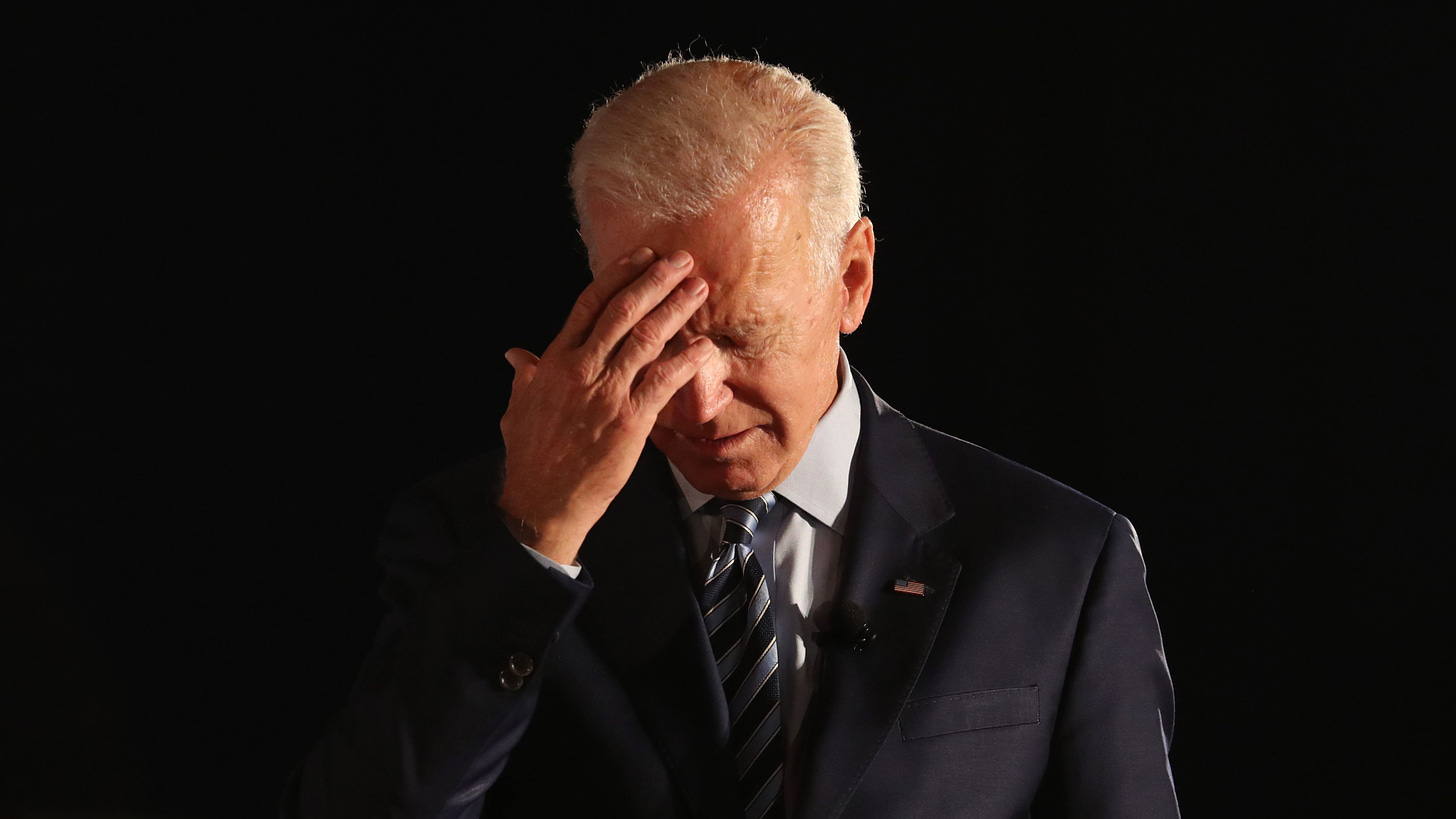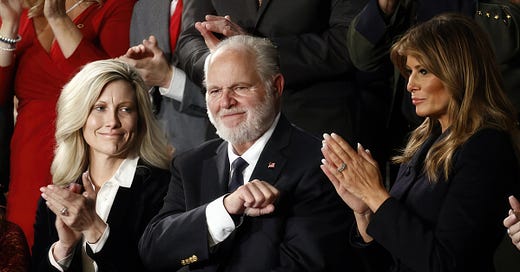
Discover more from @amuse
President Biden's reported consideration of preemptive pardons could reshape the accountability landscape dramatically, potentially exposing him to greater legal jeopardy rather than providing the insulation he might expect. If he proceeds to issue sweeping pardons to everyone involved in his alleged influence-peddling—including his brother Jim Biden and figures tied to his various international dealings during his time as vice president—alongside key players in the lawfare targeting Donald Trump, such as Attorney General Merrick Garland, Special Counsel Jack Smith, NYC DA Alvin Bragg, acting Justice Merchan, and Fani Willis, Biden's decision could trigger unintended and disastrous consequences. The strategy may provide temporary relief, but it ultimately risks dismantling the very network of protection he has established, potentially turning once-loyal allies into significant liabilities.
Biden's Influence and Its Tangled Web
The allegations against Biden have persisted for years, pointing to his suspected entanglements with Ukraine, China, and other foreign actors, which have led to widespread concern and criticism. Evidence ranging from emails and financial documents to call logs paints a compelling picture of questionable influence-peddling. Hunter Biden's high-paying role with Burisma, a Ukrainian energy company, stands as the most well-known example. His lack of experience in the energy field raised questions, even within the Obama administration, as to what exactly was being bought with such lucrative payments. Allegedly, President Biden extended a preemptive pardon covering Hunter's tenure at Burisma—a measure that coincided with diplomatic dealings that Biden himself spearheaded in Ukraine. Similarly, Biden's connections to Chinese firms, with mentions of the "10% for the big guy" in leaked emails, hint at a widespread system of potential corruption far beyond just Ukrainian interests. By issuing blanket pardons to those entangled in these dealings—including Jim Biden, whose own activities have faced scrutiny—Biden risks escalating the scandal rather than extinguishing it.
Coordinated Lawfare: The Anti-Trump Strategy
In recent years, political lawfare has been weaponized as a potent instrument against former President Donald Trump. Various prosecutors—from Jack Smith to Fani Willis and Alvin Bragg—have sought ways to block Trump's re-election bid through an intricate web of legal cases. For many observers, this represents a profound abuse of prosecutorial discretion, a weaponization of the justice system to eliminate political threats. Matthew Colangelo, previously the number three official in the U.S. Attorney General's office, made an unprecedented move by stepping down to become a line prosecutor at the NYC DA's office specifically to handle Trump's prosecution—a glaring example of the lengths to which the anti-Trump machine will go. Such calculated lawfare, notably, cannot be undone by a presidential pardon, adding another layer of difficulty in combatting its effects. Furthermore, revelations have surfaced that both Fani Willis and Nathan Wade, of the Fulton County DA's office, met with White House lawyers on multiple occasions to strategize about the Georgia RICO cases against Trump. Compounding these concerns, credible reports of prosecutorial misconduct within Jack Smith's team have surfaced but were dismissed without investigation by the DOJ's Office of the Inspector General. Biden may believe that issuing preemptive pardons to these individuals will shield them from reprisal, but such a move would strip away one critical shield they currently enjoy: the Fifth Amendment.
Pardons and the Fifth Amendment: Removing the Shield
The paradox in Biden's potential move lies in the Fifth Amendment protections of his allies. The Supreme Court case Burdick v. United States (1915) establishes that once an individual is pardoned, they can no longer invoke their Fifth Amendment right to avoid self-incrimination, as they no longer face criminal jeopardy for the pardoned offense. Therefore, preemptive pardons would effectively compel those individuals to testify if called upon. For example, someone like Merrick Garland could be subpoenaed and forced to testify under oath about the motivations behind the lawfare against Trump. Refusal to testify or false testimony would expose them to charges of perjury or obstruction. Thus, what Biden hopes to use as a shield to protect his circle could inadvertently rip away the legal protections they currently enjoy, making them dangerous liabilities.
Furthermore, even a pardoned individual remains vulnerable if they lie under oath or refuse to cooperate, as immunity does not grant them impunity. This scenario—in which individuals are forced to testify without the option of invoking the Fifth Amendment—could prove to be a nightmare for Biden, unraveling the very fabric of loyalty that has kept his network intact.
The Dilemma of a Self-Pardon
All of this raises the critical question: would President Biden ultimately need to pardon himself? The concept of a presidential self-pardon is fraught with legal ambiguities and remains untested in the courts. Some constitutional scholars argue that self-pardons are not permissible since they would make the president both judge and defendant, while others point to the broad clemency powers granted to the presidency without explicit prohibition. Attempting a self-pardon would likely ignite a constitutional crisis, with a protracted battle ultimately landing in the Supreme Court. The spectacle alone could undermine Biden's legitimacy, regardless of the outcome.
Yet there remains a more subtle, and arguably more cunning, approach. During his previous medical procedure, President Biden transferred power to Vice President Kamala Harris temporarily under Section 3 of the 25th Amendment, which allows a president to declare themselves unable to discharge the powers and duties of their office, thereby temporarily transferring authority to the vice president. Imagine a scenario where Biden undergoes another routine medical procedure, invokes the 25th Amendment, and Harris assumes the presidency for just a few hours—long enough to issue a pardon for Biden himself. This approach would be constitutional, clever, and would provide Biden with plausible deniability. There are even historical precedents: President Ronald Reagan transferred power to Vice President George H.W. Bush during surgery in 1985, and Vice President Dick Cheney twice assumed the role of Acting President while George W. Bush underwent medical procedures. Vice President Harris has herself already assumed temporary presidential powers during one of Biden's previous medical procedures.
Conclusion
The prospect of President Biden issuing sweeping preemptive pardons to safeguard his allies and himself may ultimately backfire. The move could dismantle the very framework of legal defenses that these individuals rely on, compelling them to testify truthfully under penalty of perjury. Far from providing protection, such pardons could transform them into liabilities who might expose Biden's own alleged misconduct. In a desperate attempt to shield himself, Biden might even contemplate a self-pardon, an act riddled with constitutional uncertainties. Alternatively, he might orchestrate a temporary transfer of power to Vice President Harris to ensure his own pardon. These scenarios underscore the dangerous and uncharted territory Biden may be entering—a gamble that could leave him more vulnerable rather than protected.
If you don't already, please follow me on 𝕏 at https://x.com/amuse or medium.

















